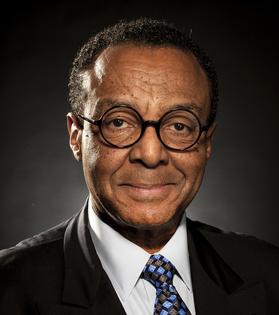Clarence Thomas’ American Dream — With a Little Help From His Friends
If you live long enough to see your heroes deposed from their former glory by the exposure of long-hidden truths, it can make you feel as though, maybe, you have lived too long.
I had heard of Horatio Alger, but not the Association of Distinguished Americans that was named after him — until I heard that their honored members included Supreme Court Justice Clarence Thomas. And that would not have mattered a lot to me if Thomas had not spent recent weeks making headlines for his membership in the Alger association and similar well-heeled groups.
As you may know — or, at least, should know — Thomas benefited personally from being a member of that exclusive association of wealthy and influential Americans, which has its philosophical roots in the Gilded Age, an era roughly running from 1877 to 1900.
The era’s name comes from a novel, co-authored by Mark Twain; it’s a reference to the way serious social problems were thinly masked, in Twain’s view, by the gold gilding of economic expansion. A new mechanized and industrial America emerged in that period as wages grew in the Northern and Western industrial belts, along with wages and demands for labor, skilled and unskilled.
A cultural change came too. Alger’s bestselling books about poverty-stricken boys who rise above their circumstances helped build a grand American narrative taught to one generation of boys after another, including mine, that anyone can succeed, regardless of difficulties, if they work hard enough, stick to it and don’t quit.
I still believe that, and despite the corniness of its themes to modern sensibilities, my wife and I have tried to teach this concept to our son, who, despite his initial resistance, began to see Alger’s message after he grew old enough to have a mortgage and pay taxes.
We’re talking, of course, about the American Dream, as it is widely known. It is, of course, widely debated as to whether the dream is still alive. As near as I can tell after reading years of studies by the Brookings Institution and the like, it works better at lifting the boats of the poor but hardworking up to affluence in a robust economy, with robustness varying from one period to another.
Nevertheless, the Alger association seeks, according to quotes from its tax filings, “to spread the message that America’s free enterprise system provides the greatest opportunities in the world for personal achievement and success.”
I agree, up to the point of saying those opportunities could have even better outcomes with a little help from, say, job training and placement programs, among other possibilities.
But that gets us into politics of the sort that brought Thomas to our attention in the first place. The Supreme Court recently made the momentous decision of overturning affirmative action programs as unconstitutional if they were based on race. That was a big disappointment to people who feel — or know from experience — that race might have made a difference in their being able to take advantage of career or educational opportunities.
And it was a big victory for those who feel that using race as a criterion for affirmative action is a form of racism in itself, even if in pursuit of anti-racist goals.
I think, for this moment, that the high court made the right call. Now, let’s see how it works out, and if necessary, we can revisit the issue. In the meantime, I hope we can learn to be realistic about how our economy opens up opportunities and how problems such as racism can close those doors.
In short, I know the spirit of Alger’s comfortable myths teach a valuable lesson about how hard work leads to appropriate rewards or, at least, that it should.
Sometimes, you see, opportunities can use a little help to make them open up. I’m fortunate that, although I was born into a hardworking family of farmers and factory workers, we had enough healthy influences that encouraged us to keep working hard, no matter how many impediments happened to be thrown our way.
Thomas was fortunate enough to be invited into the association and given proximity to what The New York Times calls “a lifestyle of unimaginable material privilege.”
Now questions have come up as to why he did not disclose more of these material privileges on the forms on which justices are supposed to report possible conflicts of interest. He’ll have to answer those questions on his own, as all justices should be required to do — as long as they hold the job.
=======
(E-mail Clarence Page at cpage@chicagotribune.com.)
©2023 Clarence Page. Distributed by Tribune Content Agency, LLC.
(c) 2023 CLARENCE PAGE DISTRIBUTED BY TRIBUNE MEDIA SERVICES, INC.


























Comments